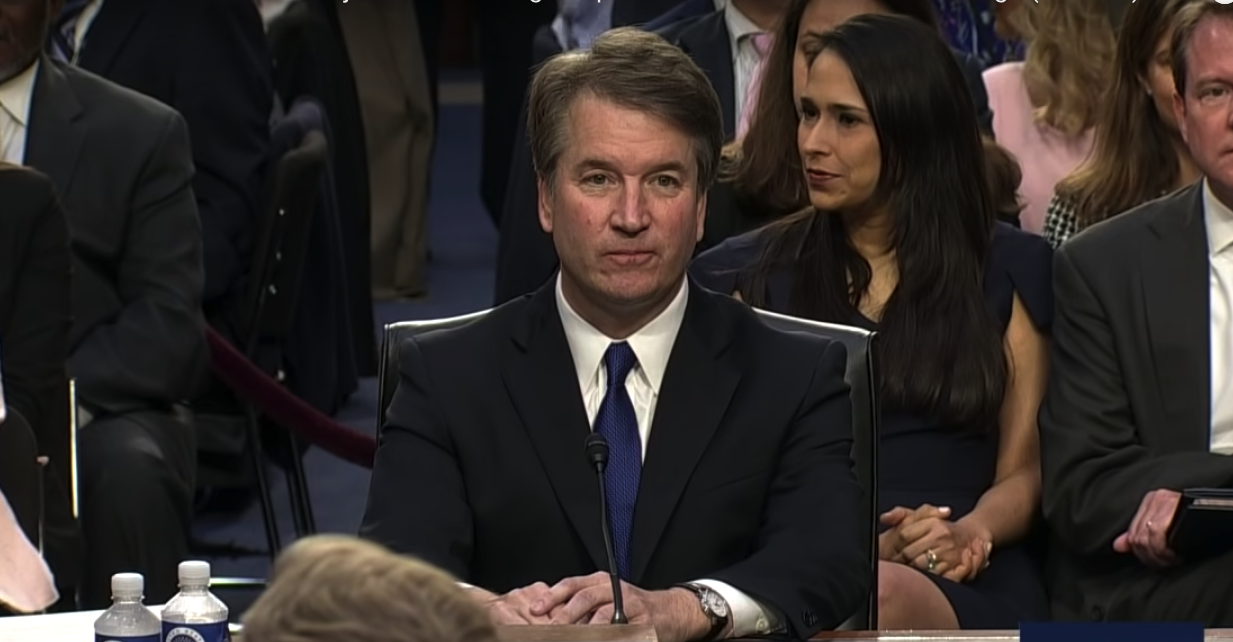Less than a week ago, Republicans were jubilant as Supreme Court nominee Brett Kavanaugh seemed unsinkable. Now, with their nominee mired in allegations of attempted sexual assault, Republicans are eager to plow ahead with a vote before any further damage is done. “It is imperative the Judiciary committee move forward on the Kavanaugh nomination and a committee vote be taken ASAP,” tweeted Senator Lindsey Graham (R-SC).
The haste among conservatives to press forward with Brett Kavanaugh’s confirmation despite highly credible accusations of a serious crime is understandable. But it may cost them dearly–not just with voters in the upcoming election, but also by jeopardizing their judicial majority in the years ahead.
With many GOP-held seats at risk and Republicans in danger of losing the upper chamber in November, many Senators are naturally eager to head back to their home states and concentrate on the campaign trail. If Democrats do retake the Senate, they could refuse to hold a hearing for any Trump-nominated justices, repaying Senate Leader Mitch McConnell in kind for scuttling President Obama’s nominee Merrick Garland. Nor is it any guarantee what party loyalty outgoing senators may show in the lame duck session between the election and the seating of a new Senate body in January.
But the challenge to Republicans in sprinting to a confirmation vote for Kavanaugh without a full inquiry into the claims against him is that it could considerably strengthen Democratic leverage if the current minority party gains unitary control of government in the 2020 election.
If demographic trends favoring Democrats combine with anti-Trump backlash heading into the next decade, it’s possible—if not probable—that Democrats could sweep majorities across the federal government that may be difficult for Republicans to dislodge absent a realignment. But a Supreme Court that tilts hard to the right after Trump could stymie much long-desired progressive legislation on issues from guns to healthcare to campaign finance. This in turn would put strong pressure on Democrats from their base to find ways around the roadblock.
Anticipating this outcome, some have advocated for simply expanding the number of justices on the Court. There is nothing in the U.S. Constitution stating that Supreme Court must be limited to nine justices. The number rose and shrank during the 19th century, only settling on its current number in 1869. Most presidents have been wary of any attempt to expand the court since Franklin Delano Roosevelt tried and failed due to the scheme’s unpopularity, but modern hyperpartisan realities could find a much more receptive base of Democrats and independents in response to ultra-conservative rulings.
Some others have pushed for impeaching Kavanaugh, both for lying under oath about receiving the stolen internal documents of Democratic legislators, and even simply for having been nominated by a president whom they consider illegitimate and actively under investigation by the FBI.
But either option would be risky and face enormous pitfalls. Of the two, increasing the number of justices would be theoretically easier—it would only require 60 votes to overcome a filibuster to overturn the law establishing the court at nine, while convicting a Justice in the Senate would required 67 votes. But packing the court would be more likely to trigger a permanent war of escalation in which each side fights to do likewise as the pendulum of power shifts; a one-time impeachment would in theory be localized to the issue at hand and more difficult to replicate in the future.
And this is where a hasty Kavanaugh confirmation could seriously hurt Republicans down the road. If Kavanaugh is confirmed on a near party-line vote without a serious investigation into his accuser’s claims, and then those claims are corroborated by subsequent investigations launched by a Democratic congress, Democrats and the liberal base will have a powerful argument that an alleged sexual assailant should be impeached rather than serve on the Court and preside over cases central to women’s rights.
If Republicans refuse to vote to impeach and convict Kavanaugh at that point, Democrats will then have a powerful argument that adding more justices to the court is the only way to rectify the injustice.
Basic morality should dictate that Republicans take a step back and allow proper investigations to unfold. But even as a matter of realpolitik, Republicans would likely to better off in the long run by taking a little more time to get this nomination right by delaying a vote or changing nominees, than giving future Democratic majorities all the reason they need to impeach Kavanaugh or even permanently shift the balance of power on the highest court in the land.



